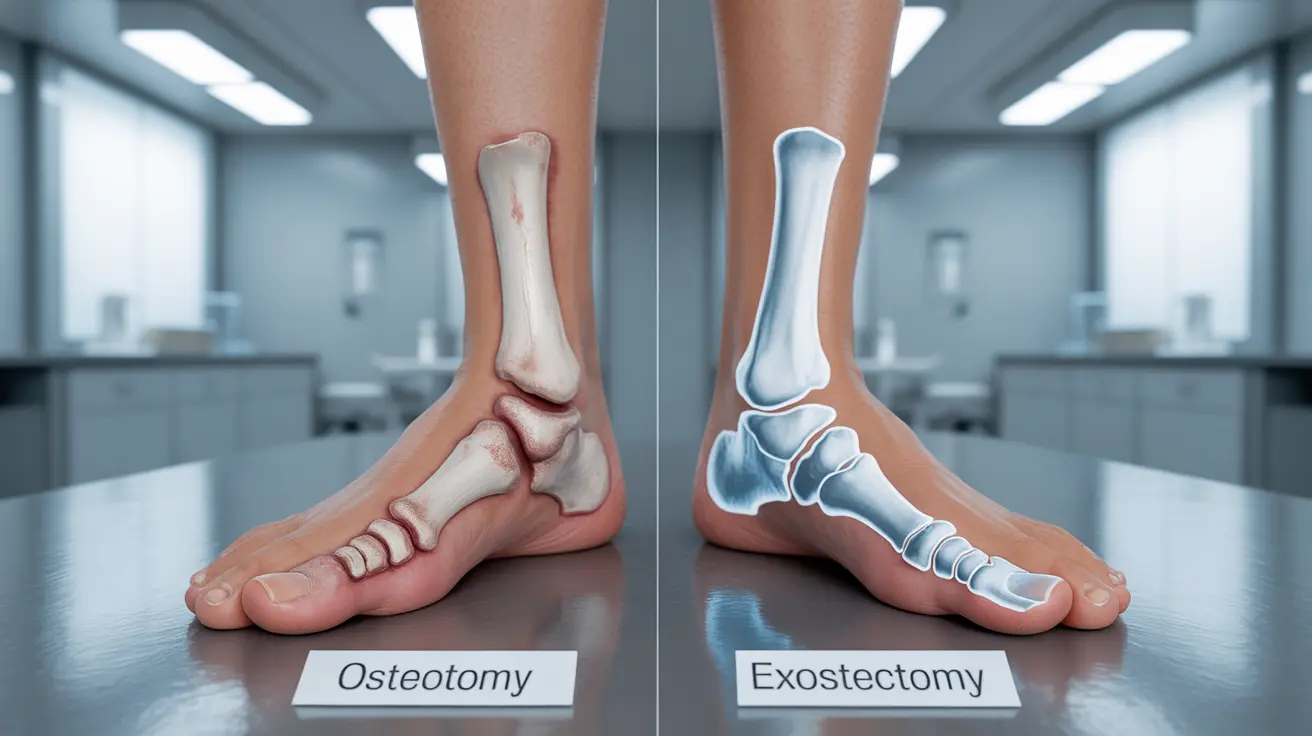If you're considering bunion removal surgery, understanding the procedure, recovery process, and what to expect afterward is crucial for making an informed decision. This comprehensive guide will walk you through everything you need to know about bunion removal surgery, from surgical options to recovery timeline and aftercare.
Understanding Bunion Surgery Options
Bunion removal surgery, also known as bunionectomy, encompasses several surgical techniques that your doctor may recommend based on your specific condition. The choice of procedure depends on factors like bunion severity, bone structure, and overall foot health.
Common Surgical Procedures
Different surgical approaches address varying degrees of bunion deformity:
- Osteotomy: Involves cutting and realigning the bone
- Exostectomy: Removal of the bunion bump
- Arthrodesis: Joint fusion for severe cases
- Lapidus Procedure: Corrects the metatarsal bone alignment
The Recovery Timeline
Recovery from bunion surgery typically progresses through several phases, with the total healing time varying by procedure type and individual healing factors.
Immediate Post-Surgery Period (First Week)
During the first week after surgery, patients can expect:
- Significant foot elevation requirements
- Use of protective surgical shoes or boots
- Limited weight-bearing activities
- Pain management with prescribed medications
Early Recovery Phase (Weeks 2-6)
The initial healing phase involves:
- Gradual increase in mobility
- Regular wound care and dressing changes
- Physical therapy exercises as prescribed
- Continued use of supportive footwear
Managing Post-Surgery Expectations
Understanding what to expect after bunion surgery helps prepare for a successful recovery. Most patients experience some degree of swelling, discomfort, and limited mobility during the first few weeks.
Pain and Swelling Management
Effective post-operative care includes:
- Regular ice application
- Proper elevation techniques
- Following medication schedules
- Gentle compression when approved
Return to Activities
The timeline for returning to normal activities varies but typically follows this progression:
- Week 2-3: Limited walking with surgical shoes
- Week 6-8: Transition to regular footwear
- Month 3-4: Return to most daily activities
- Month 4-6: Resume high-impact activities
Frequently Asked Questions
What are the different surgical options available for bunion removal and how do they work?
Bunion removal surgery options include osteotomy (bone cutting and realignment), exostectomy (bump removal), arthrodesis (joint fusion), and the Lapidus procedure (metatarsal realignment). Your surgeon will choose the most appropriate method based on your bunion severity and foot structure.
How long does it typically take to recover after bunion surgery and what is the usual recovery process?
Full recovery typically takes 3-6 months. The process begins with strict rest and elevation for the first week, followed by gradual weight-bearing activities. Most patients can return to regular shoes around 6-8 weeks post-surgery, with complete healing occurring over several months.
What should I expect during the first few weeks after bunionectomy in terms of pain, swelling, and activity restrictions?
During the first few weeks, expect moderate pain manageable with medication, significant swelling requiring frequent elevation, and limited mobility. You'll need to wear special surgical footwear and avoid putting weight on the operative foot as directed by your surgeon.
When can I start putting weight on my foot and return to normal activities after bunion removal surgery?
Initial weight-bearing usually begins 2-3 weeks post-surgery with surgical shoes. Return to normal activities is gradual: light activities at 6-8 weeks, most daily activities by 3 months, and high-impact activities after 4-6 months, following your surgeon's guidance.
What aftercare steps and precautions can help reduce swelling and ensure proper healing following bunion surgery?
Key aftercare steps include regular elevation above heart level, ice therapy, proper wound care, following medication schedules, wearing prescribed footwear, attending follow-up appointments, and gradually increasing activity as directed by your healthcare provider.




